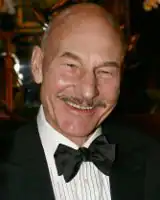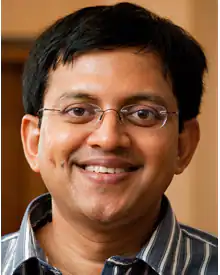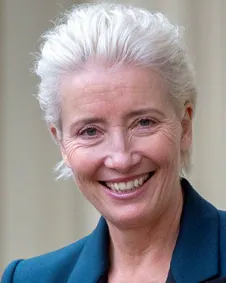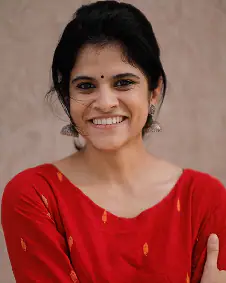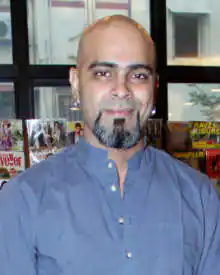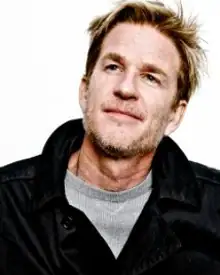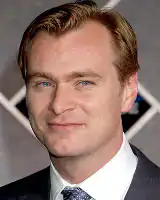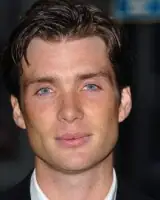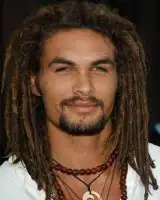Jon Voight Biography
Jonathan Vincent "Jon" Voight is an American Academy Award-winning, Emmy- and BAFTA Award-nominated film and television actor. He has had a long and distinguished career as both a leading man and a character actor, with an extensive and compelling range. He came to prominence at the end of the sixties, with a performance as a would-be hustler in 1969's Best Picture winner, Midnight Cowboy, for which he earned his first Academy Award nomination.
Throughout the following decades, Voight built his reputation with an array of challenging roles and has appeared in such landmark films as 1972's Deliverance, and 1978's Coming Home, for which he received an Academy Award for Best Actor. Voight's impersonation of the late sportscaster/journalist Howard Cosell, in 2001's biopic Ali, earned Voight critical raves and his fourth Oscar nomination.
He is the father of actors Angelina Jolie and James Haven as well as brother of singer-songwriter Chip Taylor and geologist Barry Voight. He has six grandchildren by Jolie and her partner Brad Pitt.
Early Life
Voight was born in Egg Harbor Twp, New Jersey, the son of Barbara (née Kamp; New York, January 7, 1910 – Palm Beach County, Florida, December 3, 1995) and Elmer Voight (October 29, 1909 – June, 1973), a professional golfer. His maternal grandparents were German; his paternal grandfather was an immigrant from the city of Kassa in Austria-Hungary.
Voight attended Archbishop Stepinac High School in White Plains, New York, where he first took an interest in acting, playing the comic role of Count Pepi Le Loup in the school's annual musical, The Song of Norway. After graduating from high school in 1956, he went to college at The Catholic University of America in Washington, D.C., where he majored in art and graduated with a B.A. in 1960.
At CUA, he demonstrated his artistic skill by designing the cardinal that adorned the center of the floor of the basketball court. This section of floor now resides on display in the school's Pryzbyla University Center.
Early Career
After graduation, Voight moved to New York City, where he pursued an acting career. In 1962, he married actress Lauri Peters, whose credits include 1962's Mr. Hobbs Takes a Vacation and 1963's Summer Holiday. In the early sixties, Voight found work in television, appearing in several episodes of Gunsmoke, between 1962 and 1966, as well as guest spots on Naked City, and The Defenders, both in 1963, and Twelve O'Clock High, in 1966.
Voight's film debut did not come until 1967, when he took a part in Phillip Kaufman's crime-fighter spoof, Fearless Frank. Voight also took a small role in 1967's western, Hour of the Gun, directed by veteran helmer John Sturges. That year, he and Lauri Peters were divorced, after five years of marriage. In 1968, Voight took a role in director Paul Williams' Out of It.
While Voight pursued acting, his brother Wes found success as a songwriter under the nom de plume Chip Taylor. Taylor penned The Troggs' 1966 hit, Wild Thing, as well as Angel of the Morning. Another of Jon's brothers, Barry Voight, studied geology at Columbia University and became a world-renowned volcanologist at Pennsylvania State University.
Becoming A Star In The 1970s
In 1969, Voight was cast in the groundbreaking Midnight Cowboy, a film that would make his career, establishing him as one of the premier actors of his generation. Voight played Joe Buck, a naïve male hustler from Texas, adrift in New York City. He comes under the tutelage of Dustin Hoffman's Ratso Rizzo, a tubercular petty thief and con artist.
The film explored late sixties New York and the development of an unlikely, but poignant friendship between the two main characters. Directed by John Schlesinger and based on a novel by James Leo Herlihy, the film struck a chord with critics. Because of its controversial themes, the film was released with an X rating and would make history by being the only X-rated feature to win Best Picture at the Academy Awards. Both Voight and co-star Hoffman were nominated for Best Actor but lost out to John Wayne, star of that year's True Grit.
Now a "name" actor, in 1970, Voight went on to join the all-star cast of Mike Nichols' adaptation of Catch-22. Adapted by Buck Henry from Joseph Heller's comic anti-war novel, and featuring the acting talents of Voight, Alan Arkin as the main character of John Yossarian, Anthony Perkins, Art Garfunkel, Bob Newhart, Richard Benjamin, and Orson Welles. The same year, Voight re-teamed with director Paul Williams to star in The Revolutionary, as a left wing college student struggling with his conscience.
Voight appeared in 1972's Deliverance, directed by John Boorman, from a script that poet James Dickey had helped to adapt from his novel of the same name. The story of a canoe trip gone awry in a feral, backwoods America, the film resonated on several levels, tapping into urban anxieties about the untamed country and modern man's fear of his own darker instincts.
The film and the performances of Voight and co-star Burt Reynolds received great critical acclaim and were popular with audiences. The film even spawned a radio hit, when "Dueling Banjos" became a Top-40 staple.
On 12 December 1971, Voight married model and actress Marcheline Bertrand. Their son James Haven was born in 1973, followed by daughter Angelina Jolie in 1975. Both children would go on to enter the film business, James as an actor and writer, and Angelina as a major Oscar-winning movie star in her own right.
Voight played a directionless young boxer in 1973's The All American Boy, then appeared in the 1974 film, Conrack, directed by Martin Ritt. Based on Pat Conroy's autobiographical novel The Water Is Wide, Voight acted out the title character, an idealistic young schoolteacher sent to teach underprivileged black children on a remote South Carolina island.
The same year, he appeared in The Odessa File, based on Frederick Forsyth's thriller, playing a young German journalist who discovers a conspiracy to protect former Nazis still operating within Germany. This film first teamed him with the actor-director Maximilian Schell, for whom Voight would appear in 1976's End of the Game, a psychological thriller based on a story by the famed Swiss novelist and playwright, Friedrich Dürrenmatt.
In 1978, Voight assumed a role that would earn him a second major triumph, that of the paraplegic Vietnam veteran Luke Martin in the Hal Ashby-directed film Coming Home. The film marked the beginning of the post-Vietnam War era and reflected a coming-to-terms with the emotional costs of both the war and the anti-war movement.
The presence of Jane Fonda in the female lead assured some controversy, given her outspoken views during the war, but her portrayal of a military wife who volunteers her services to help disabled vets was well-received. Voight, who was awarded Best Actor at the Cannes Film Festival, for his portrait of an embittered paraplegic, reportedly based on real-life Vietnam veteran-turned-anti-war activist Ron Kovic, with whom Fonda falls in love.
The film included a much-talked-about love scene between the two. The film was a major winner at the Oscars that year with Jane Fonda winning her second Best Actress statuette and presenters Diana Ross and Ginger Rogers calling Voight to the podium, where they presented him with his first Oscar for Best Actor in a Leading Role.
Voight's marriage to Marcheline Bertrand failed in 1978. The following year, Voight once again put on boxing gloves, starring in 1979's remake of the 1931 Wallace Beery and Jackie Cooper vehicle, The Champ, with Voight playing the part of an alcoholic ex-heavyweight and a young Rick Schroder playing the role of his adoring son. The film was an international success, but less popular with American audiences.
Career In The 1980s
He next re-teamed with director Ashby in 1982's Lookin' to Get Out, in which he played Alex Kovac, a con man who has run into debt with New York mobsters and hopes to win enough in Las Vegas to pay them off. Voight both co-wrote the script and also co-produced. He also produced and acted in 1983's Table for Five, in which he played a widower bringing up his children by himself.
In 1985, Voight hooked up with Russian writer and director Andrei Konchalovsky to play the role of escaped con Manny Manheim in the existential action film Runaway Train. The script was based on a story by Akira Kurosawa, and paired Voight with Eric Roberts as a fellow escapee. For his ferocious performance, Voight received an Academy Award nomination for Best Actor and won the Golden Globe's award for Best Actor. Roberts was also honored for his performance, receiving an Academy Award nomination for Best Supporting Actor.
Voight followed up this and other performances with a role in the 1986 film, Desert Bloom, and reportedly experienced a "spiritual awakening" toward the end of the decade. In 1989, Voight starred in and helped write Eternity, which dealt with a television reporter's efforts to uncover corruption.
Work In The 1990s
He made his first foray into television movies, acting in 1991's Chernobyl: The Final Warning, followed by The Last of his Tribe, in 1992. He followed with 1992's The Rainbow Warrior for ABC, the story of the ill-fated Greenpeace ship sunk by French operatives in the Auckland harbour. For the remainder of the decade, Voight would alternate between feature films and television movies, including a starring role in the 1993 miniseries Return to Lonesome Dove, a continuation of Larry McMurtry's western saga, 1989's Lonesome Dove.
Voight played Captain Woodrow F. Call, the part played by Tommy Lee Jones in the original miniseries. Voight made a cameo appearance as himself on the Seinfeld episode "The Mom & Pop Store" airing November 17, 1994, in which George Costanza buys a car that appears to be owned by Jon Voight.
In 1995, Voight played a role in the acclaimed crime film, Heat, directed by Michael Mann and starring Robert De Niro and Al Pacino, and appeared in the television films Convict Cowboy, and The Tin Soldier, also directing the latter film.
Voight next appeared in 1996's blockbuster Mission: Impossible, based on the popular television series from the 1960s, directed by Brian DePalma and starring Tom Cruise. Voight played the role of spymaster James Phelps, a role originated by Peter Graves in the television series. Fans and stars of TV series were upset at the depiction of Phelps being a traitor.
The year 1997 was a busy time for Voight, in which he appeared in six films, beginning with Rosewood, directed by Boyz N the Hood director John Singleton. Voight joined a cast that included Ving Rhames, Don Cheadle, and Michael Rooker in the true tale of the 1923 destruction of the primarily black town of Rosewood, Florida, by the white residents of nearby Sumner.
Voight played John Wright, a white Rosewood storeowner who follows his conscience and protects his black customers from the white rage. Voight next appeared in the exotic action film Anaconda, alongside Jennifer Lopez, Ice Cube, and Eric Stoltz. Set in the Amazon, Voight played Paul Sarone, a snake hunter obsessed with a fabled giant anaconda, who hijacks an unwitting National Geographic film crew looking for a remote Indian tribe.
Voight next appeared in Oliver Stone's U Turn. He made a cameo appearance as a blind man in this eccentric neo-noir starring Sean Penn and Lopez. Voight took a supporting role in The Rainmaker, adopted from the John Grisham novel and directed by Francis Ford Coppola. He played an unscrupulous lawyer representing an insurance company, facing off with a neophyte lawyer played by Matt Damon. His last film of 1997 was Boys Will Be Boys, a family comedy directed by Dom DeLuise.
The following year, Voight had the lead role in the television movie The Fixer, in which he played Jack Killoran, a lawyer who crosses ethical lines in order to "fix" things for his wealthy clients. A near-fatal accident awakens his dormant conscience and Killoran soon runs afoul of his former clients. He also took a substantial role in Tony Scott's 1997 political thriller, Enemy of the State, in which Voight played the heavy opposite Will Smith's heroic lawyer.
Voight was reunited with director Boorman in 1998's The General. Set in Dublin, Ireland, the film tells the true-life story of the charismatic leader of a gang of thieves, Martin Cahill, at odds with both the police and the IRA. Voight gives a convincing performance as Inspector Ned Kenny, determined to bring Cahill to justice.
Boorman shot the film on location, and largely financed it himself. The freedom to work without interference from the studios allowed him to make what felt like a personal film and both Brendan Gleeson in the lead, and Voight in the main supporting role, gave memorable performances.
Voight next appeared in 1999's Varsity Blues, starring Dawson's Creek star James Van Der Beek. Voight played a blunt, autocratic football coach, pitted in a test of wills against his star player, portrayed by Van Der Beek. Produced by fledgling MTV Pictures, the film became a surprise hit and helped connect Voight with a younger audience.
Voight played Noah in the 1999 television production Noah's Ark, and appeared in Second String, also for TV. He also appeared with Cheryl Ladd in the feature A Dog of Flanders, a remake of a popular film set in Belgium. The following year Voight would watch from the audience as his daughter received the Best Supporting Actress Oscar for her role in 1999's Girl Interrupted.
Recent Career
Voight next portrayed Franklin Delano Roosevelt in 2001's action/war film, Pearl Harbor, reportedly beating out Gene Hackman for the role (his performance was received favorably by critics). Also that year, he appeared as Lord Croft, father of the title character of Lara Croft: Tomb Raider. Based on the popular video game, the digital adventuress was played on the big screen by Voight's own real-life daughter, Angelina Jolie.
That year, he also appeared in Zoolander, directed by Ben Stiller who starred as the title character, a vapid supermodel with humble roots. Voight appeared as Zoolander's coal-miner father. The film extracted both pathos and cruel humour from the scenes of Zoolander's return home, when he entered the mines alongside his father and brothers and Voight's character expressed his unspoken disgust at his son's chosen profession.
Also in 2001, Voight joined Leelee Sobieski, Hank Azaria and David Schwimmer in the made-for-television movie Uprising, which was based on the uprising in the Warsaw ghetto. Voight played Major-General Juergen Stroop, the officer responsible for the destruction of the Jewish resistance, and received an Emmy nomination for Best Supporting Actor.
Director Michael Mann tagged Voight for a small but crucial role in the 2001 biopic Ali, which starred Will Smith as the controversial former heavyweight champ, Muhammad Ali. Voight was almost unrecognizable under his make-up and toupee, as he impersonated the sports broadcaster Howard Cosell.
Voight received his fourth Academy Award nomination, this time for Best Actor in a Supporting Role, for his performance, extending his reign as one of Hollywood's most talented actors.
In the critically-acclaimed CBS miniseries Pope John Paul II, released in December 2005, Voight, who was raised a Catholic, portrayed the pontiff from the time of his election until his death, garnering an Emmy nomination for the part.
In 2003, he played the role of Mr. Sir in Holes. In 2004, Voight joined Nicolas Cage, in National Treasure as Patrick Gates, the father of Cage's character. In 2006, he was Kentucky Wildcats head coach Adolph Rupp in the Disney hit Glory Road. In 2007, he played United States Secretary of Defense John Keller in the summer blockbuster Transformers, reuniting him with Holes star Shia LaBeouf. Also in 2007, Voight reprised his role as Patrick Gates in National Treasure: Book of Secrets.
In 2008, Voight played Jonas Hodges, the villain, in the seventh season of the hit FOX drama "24", a role which seems to resemble in many ways Thomas Reynolds, Voight's character in Enemy of the State. Voight made his first appearance in the two-hour prequel episode "24: Redemption" on November 27.
Politics
As a young man Voight's political views were liberal and he supported both John F. Kennedy and George McGovern. During the Nixon administration, Voight actively protested against the Vietnam War. However, in July 28, 2008, op-ed in The Washington Times, he wrote that he regrets his youthful anti-war activism, calling it the result of "Marxist propaganda."
Voight appeared on Fox & Friends to endorse former New York City Mayor Rudy Giuliani for the 2008 Republican Party nomination. He attended a Giuliani campaign event and said New York City was transformed into a much safer, cleaner and more livable city.
In March 2008, Voight appeared at a rally aboard the USS Midway in San Diego, California for the kick-off of Vets for Freedom's National Heroes Tour. In an April 11, 2008, interview on the Glenn Beck show Voight stated that he had thrown his support to Republican Senator John McCain for President.
In September 2008, Voight appeared in a video available on YouTube from the Republican National Convention admonishing viewers to support the American troops. He also provided the narration for a video biography of Alaska governor Sarah Palin, the Republican Vice-Presidential nominee, that appeared on John McCain's campaign website.
Voight was a guest at the 2008 Republican National Convention. Voight also starred with fellow Republican actors Kelsey Grammer, Dennis Hopper, and James Woods in the conservative-leaning comedy film An American Carol, which opened on October 3, 2008.
Celeb Birthdays
-
John Gielgud Apr 14
-
Babu Gogineni Apr 14
-
Emma Thompson Apr 15
-
Mandira Bedi Apr 15
-
Maya Krishnan Apr 15
-
Raghu Ram Apr 15
-
Sakshi Shivananda Apr 15




 Click it and Unblock the Notifications
Click it and Unblock the Notifications



